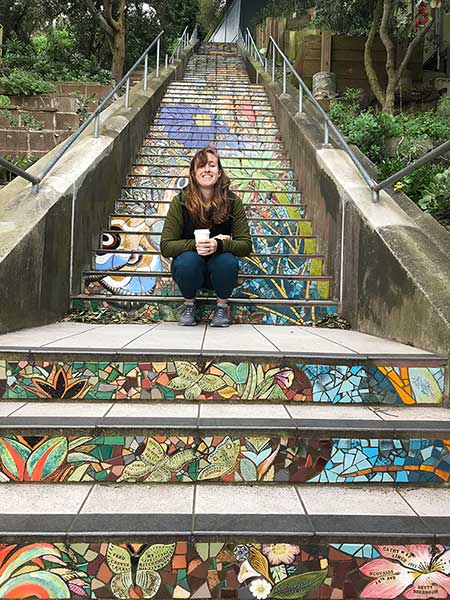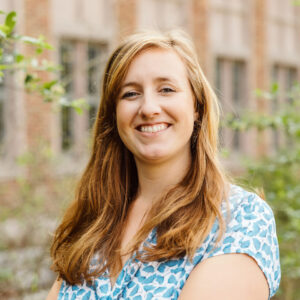Program Director
Meghan Lewis is Program Director for the Carbon Leadership Forum, leading research on procurement of low carbon materials and how public and private embodied carbon policy can support the rapid decarbonization of building materials and construction. Previous to joining the CLF, Meghan was the Head of Global Energy & Sustainability at WeWork, where she also launched the Supply Chain Sustainability program in 2018. Meghan gained her architecture license while practicing at Mithun, where she worked on a range of project types and spearheaded internal efforts to integrate LCA and low carbon material selection into the design process.
by Meghan Lewis
I was first introduced to life cycle assessment while studying architecture at the ‘other’ Washington University (in St. Louis). A fall seminar on Decoding Sustainable Materials became the gateway to a lifelong passion for investigating sustainable materials and supply chains. Unlike in design studios, where we were mostly left to apply materials like paint in a rendering, the seminar encouraged us to dive into the seemingly endless list of criteria for assessing the sustainability of a material. I found that researching materials appealed not only to my love for complex systems thinking, but also my love for travel: a single material can simultaneously connect us with hundreds of years of history and thousands of workers from towns or entire countries we may never visit.
The seminar turned into a year of research after graduation analyzing the criteria behind the rapidly expanding landscape of material sustainability standards and ecolabels. Within six months of graduating, I’d read enough NSF, ASHRAE, and other standards to last a lifetime, but I also had the chance to interview architects, builders, and manufacturers who were struggling to navigate what they felt was a world of tradeoffs when it comes to material sourcing. Are toxic ingredients worse than deforestation? Is it better to have recycled or biodegradable products? How can you compare water efficiency to the energy consumed to create a product?
Today I would push to solve both, rather than waste time choosing between two evils. But at the time, I was hungry for a framework to evaluate these complex, seemingly incomparable but interconnected criteria. While it by no means could answer every question, life cycle assessment excited me as a framework holistic enough to take in the real breadth of a product or building’s impact.
In graduate school, I had the chance to dig deeper and came across Kate’s Life Cycle Assessment while completing my thesis on using whole building life cycle assessment to evaluate the impact of adaptive reuse. After graduating, I was delighted to find that my new employer was already a sponsor of the Carbon Leadership Forum. Mithun had braved the world of life cycle assessment while developing the Build Carbon Neutral tool and other past projects, and I found a receptive audience to my eager desire to develop some of the firm’s first whole-building life cycle assessments in Tally.
My appreciation for the challenges and opportunities of policy development began in earnest when I joined WeWork’s nascent global sustainability team in 2018 to launch their supply chain sustainability program. With hundreds of projects occurring simultaneously across the globe, sustainable design could not be spearheaded by one expert on a project basis: action required the development of thoughtful company-wide policies and commitments that could be explained and executed with minimal training. I also saw the true ripple effect of policy leadership from places like California and France whose policies often set the ‘low’ bar for companies and manufacturers for all of the US or Europe and helped communicate the need for action to diverse stakeholders.
I have been fortunate to take on many roles during my career that have taken me to very different parts of the building sector. The passion and talent I’ve found in each of these spaces has inspired me and given me huge optimism for the future. However, in every context, I’ve encountered a different flavor of the same finger pointing: architects saying they would incorporate sustainability if only owners asked, companies saying they would buy sustainable products if only manufacturers would make them, and the constant refrain from every corner that there just ‘isn’t enough data.’
We have many limitations, and 2020 has certainly made it feel like more than ever. But we also have so much that we already can do. Focusing on roadblocks can distract us from celebrating and acting on the solutions that are already available. I’m enormously proud to be part of an organization and a network unified by its mission to seek the path around each roadblock to find opportunities and solutions in every corner of the building sector. Rather than searching for the answer to which criteria or goal is more important, I get to search for solutions to a much more exciting question: What can we do to collectively move forward to achieve all our goals?


Meghan Lewis